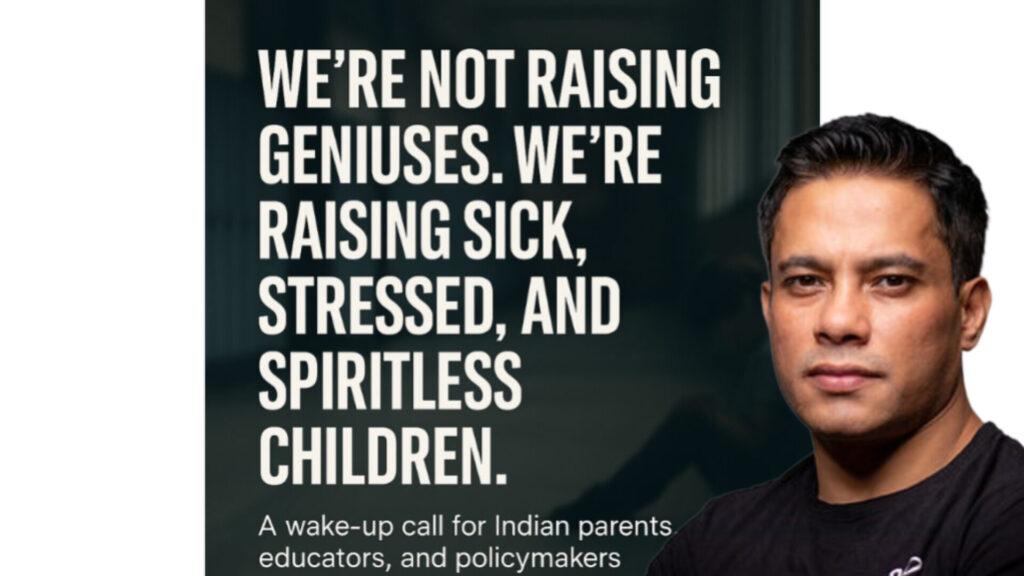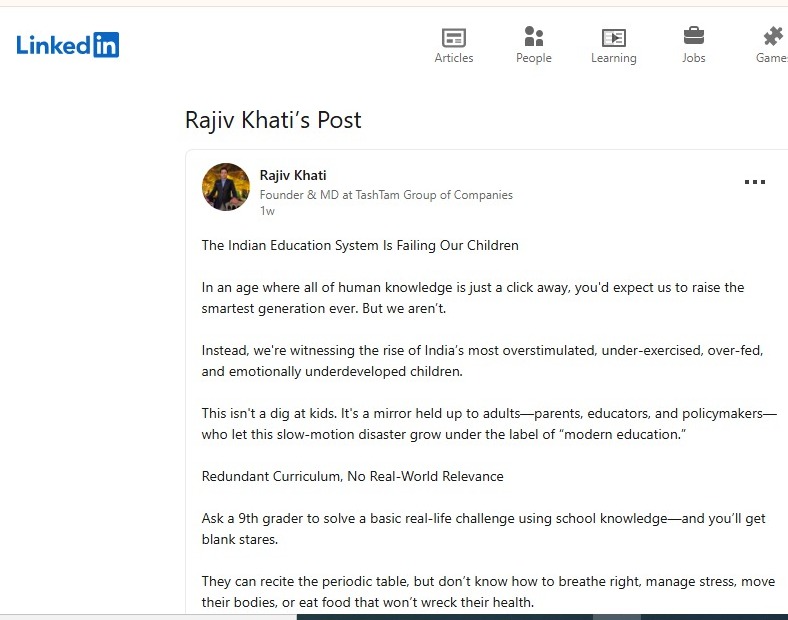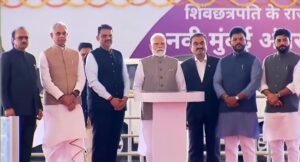Why India’s Education System Needs a Reset: Rajiv Khati’s Viral LinkedIn Post Explains

Why India’s Education System Needs a Reset: Rajiv Khati’s Viral LinkedIn Post Explains
In a powerful LinkedIn post that’s gaining traction online, Rajiv Khati, Founder and MD of TashTam Group, has sharply criticized the Indian education system for prioritizing marks over mental health, movement, and meaningful learning. Calling it a “slow-motion disaster,” Khati urges parents, educators, and policymakers to rethink what it truly means to raise educated, resilient, and healthy children.
In a hard-hitting critique that has sparked widespread discussion, Rajiv Khati, Founder and Managing Director of TashTam Group, has called out the Indian education system for “failing our children” despite the wealth of resources available in the digital age.

In a viral post on LinkedIn, Khati writes, “In an age where all of human knowledge is just a click away, you’d expect us to raise the smartest generation ever. But we aren’t.”
Khati argues that today’s children are, “overstimulated, under-exercised, over-fed, and emotionally underdeveloped”—not because of their own doing, but because of a system run by “parents, educators, and policymakers” who have allowed this “slow-motion disaster” to grow under the guise of modern education.
Redundant Curriculum, No Real-World Relevance
Khati points out the glaring disconnect between what is taught in schools and what the real world demands. They can recite the periodic table,” he writes, “but don’t know how to breathe right, manage stress, move their bodies, or eat food that won’t wreck their health.”
He criticizes the obsession with marks and outdated syllabi, arguing that the world today rewards creativity, adaptability, and initiative—skills the current system barely nurtures.
Information Overload ≠ Intelligence”
Khati notes that while children are consuming more educational content than ever before, they are understanding less and struggling more. “They scroll through endless motivational reels and ‘study hacks,’ only to feel more inadequate and anxious,” he says.
Citing a 2023 study in the Indian Journal of Psychiatry, he links high screen time to cognitive fatigue, emotional numbness, and delayed social development—calling it “digital noise,” not learning.
Lifestyle Diseases Are the Real Pandemic
In a particularly sobering section, Khati draws attention to the rising tide of health issues among children:
- 1 in 3 urban Indian children is obese or overweight
- Type 2 diabetes is appearing in children as young as 10
- Anxiety and depression are rising, fueled by poor sleep, academic pressure, junk food, and sedentary lifestyles
“We replaced play with tuition, movement with screens, and real food with packaged junk. This is the outcome,” he warns.
What Do Kids Really Need?
Khati challenges the prevailing mindset that more academics automatically translate to success:
“The world doesn’t hire toppers who burn out by 22.”
Instead, he emphasizes the importance of holistic development:
- Muscle, not just memory
- Confidence through movement, not marks
- Self-regulation over rote learning
- Resilience built from failure, not fear
The Wake-Up Call
In his concluding call-to-action, Khati outlines five urgent reforms:
- Teach less, teach better – focus on depth, not quantity
- Reclaim the body – make physical movement non-negotiable
- Fix the food – transform school canteens into nutrition-positive zones
- Prioritize mental health – teach stress management as a core subject
- Normalize discomfort – because “growth only happens outside comfort zones”
Let’s Raise Whole Humans, Not Hollow Résumés
Khati ends his post with a powerful reminder, “Children are not machines. They are emotional, physical, social beings. Let’s stop worshipping academic CVs while ignoring the quiet suffering of our kids.”
The post has struck a chord with thousands of parents, educators, and professionals across India, igniting a much-needed conversation about the purpose of education in the 21st century.












